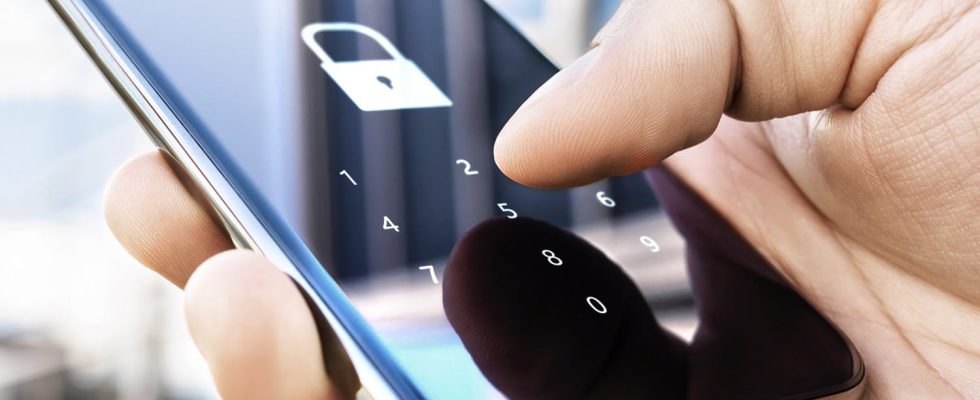The scam filter, whose official name is “national consumer cybersecurity filter”, will prevent “preventively the Internet user, or the user, when he is about to go to a site that has been identified as a scam site“, to use the words of Jean-Noël Barrot. More concretely, when the target receives an SMS inviting him to click on a fraudulent link and presses it, or when he goes directly to it – continued to an advertisement on social networks or to the referencing of Twitter for example – she will automatically receive a message indicating that the site has been identified as being a site spreading a scam in order to dissuade her from going there. to go or not.
For the filter to work, telecom operators will have to create a red list of fraudulent sites, i.e. allowing identity theft, collection of personal data, scams or payment scams. . These online offenses will be observed by the Cybermalvaillance.gouv.fr administrative authority teams. Once the list is established, web browsers and application browsers will need to prevent access to addresses. For the moment, there is talk of a blocking of at least seven days, depending on whether the offense persists or not. As for the publisher of the site, he will receive a letter informing him of the decision and will be able to contest it with a qualified person within the Regulatory Authority for Electronic Communications, Posts and Press Distribution ( Arcep).
The new Government tool should be launched on an experimental basis for the Rugby World Cup, which will take place in France from September 8 to October 28, 2023, before being generalized for the Paris 2024 Olympic Games. elsewhere not the only measure put in place, since the minister is also working on the Cyberscore which should be ready by the end of 2023 (see our article).“For the websites which are the most consulted by the French, it is a question of having an indicator which goes from green to red and which specifies to the Internet user if the personal data or if the payment data that he is going to deposit on this site are very secure”, explained the Minister in charge of Digital at the end of February on the set of France info. Be careful, in case of online scam, you have to go to the platform Cybermalveillance.gouv.frreport the site scam on internet-signalement.gouv.fr and forwarding the fraudulent message.
Cyberscore and anti-scam filter: two tools to protect Internet users
“We are all concerned and affected: the cyber threat has even gone from being an exception to a daily phenomenon.” said the Minister Delegate for the Digital Transition and Telecommunications during a trip to the new cyber campus at La Défense in October 2022. To do this, he mentioned two systems to be implemented: the cyberscore – a code inspired by the nutriscore indicating the level of security of the data hosted by a website or an Internet service (see our article) – and this famous anti-scam filter, a tool which was part of the program of the candidate Emmanuel Macron during the last campaign presidential.
Anti-scam filter: an optional extension against dangerous links
At the time, there was talk of this anti-scam filter taking the form of an extension for web browsers – Chrome, Edge, Safari, Firefox… An add-on that everyone could decide to install or not, based on the voluntary, without any compulsory character, its role consisting in filtering the Web sites, according to their potential dangerousness. We didn’t know exactly how it should work, but Jean-Noël Barrot having simply indicated that he “would warn Internet users in real time about threats”. The project has obviously progressed well since then.
In the meantime, a “task force” – a working and action group, in French… – has been instructed by the Government to work on the technical side of the creation of this anti-scam filter. Jérôme Notin, director of Cyber-Maliciousnessthe public organization for assistance and prevention in digital security, had specified that this filter is not intended to stop spam and malicious emails, but to warn Internet users when they click on dangerous links. by blocking them or highlighting their harmfulness with a notification: “It will not block the phishing, but the consequence of the phishing”he had thus confided to La Tribune.
Digital Law: laws to regulate and secure the Internet
These measures take place within a larger whole, called the digital law. Thus, the Government plans to strengthen the fight against child pornography content, not hesitating to attack Twitter and block access to pornographic sites like Pornhub (see our article) – and this by Arcom, which does not No longer need to contact a bailiff to do this – until they impose a real age verification system.
Any child pornography content will also be sanctioned. Hosts will be liable to a fine of up to 4% of their annual turnover if they do not remove child pornography content reported to them by the police and the gendarmerie within 24 hours. As for individuals, they risk one year in prison and 250,000 euros in fines. “Last year, 74,000 requests for removal of child pornography content were sent to hosts“, explains Bruno Le Maire. Finally, the Government intends to block propaganda media on the Internet, strengthen controls on influencers (see our article) and strengthen the control of tourist rentals to fight against commercial abuse in the illegal cloud sector.
